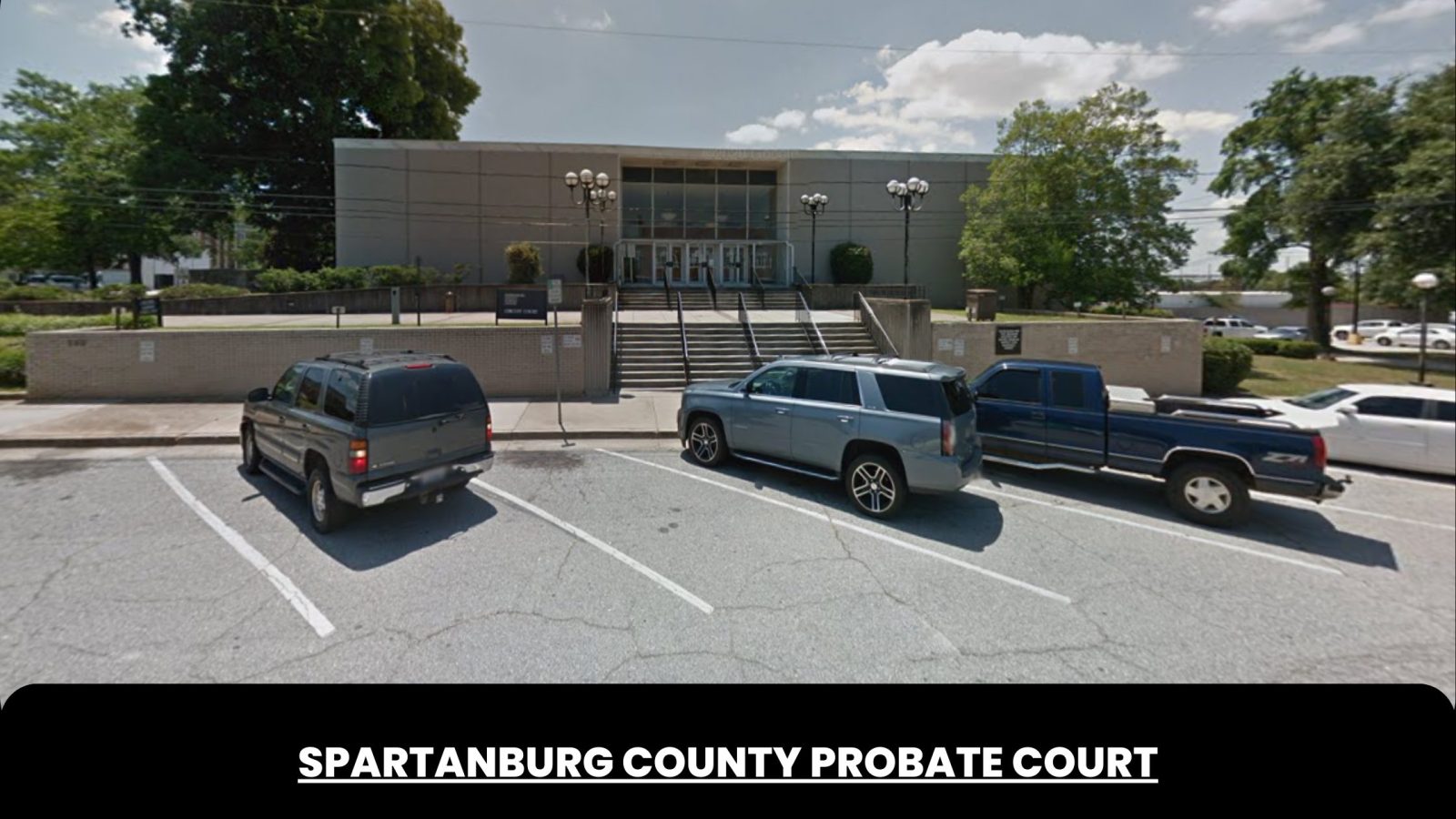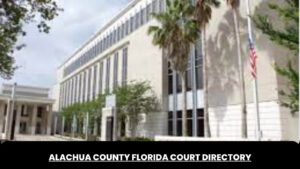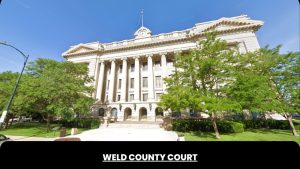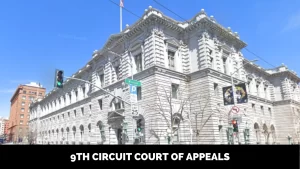Spartanburg County Probate Court
Time
Working Hours:
Monday: 8:30 am–5 pm
Tuesday: 8:30 am–5 pm
Wednesday: 8:30 am–5 pm
Thursday: 8:30 am–5 pm
Friday: 8:30 am–5 pm
Saturday: closed
Sunday: closed
Connect with a Attorney
Probate matters can often be complex and emotionally challenging. When dealing with the legal process of estate administration, guardianship, or other related issues, it’s essential to have a clear understanding of the role and functions of the probate court. In Spartanburg County, South Carolina, the Spartanburg County Probate Court plays a crucial role in overseeing these matters and ensuring the smooth transition of assets and the protection of vulnerable individuals. This article will provide an overview of the Spartanburg County Probate Court, its functions, procedures, and the importance of hiring an attorney for probate matters.
Understanding Probate Court
Probate court is a specialized court that handles matters related to the distribution of a deceased person’s estate, guardianship and conservatorship of minors or incapacitated adults, issuance of marriage licenses, mental health commitments, and other related legal proceedings. The primary goal of the probate court is to ensure the fair and efficient administration of these matters while upholding the rights and interests of all parties involved.
Functions of Spartanburg County Probate Court
Administering Estates
One of the primary functions of the Spartanburg County Probate Court is overseeing the administration of estates. When an individual passes away, their assets, debts, and final wishes need to be addressed. The probate court assists in the proper distribution of assets according to the deceased person’s will or the state’s intestacy laws if there is no valid will.
Guardianship and Conservatorship
The probate court also handles matters related to guardianship and conservatorship. In situations where a minor or an incapacitated adult requires a legal guardian or conservator, the court appoints a responsible person to make decisions on their behalf, ensuring their well-being and protection.
Marriage Licenses
The Spartanburg County Probate Court is responsible for issuing marriage licenses to eligible couples. This process involves verifying the legal requirements, such as age and identification, and ensuring the necessary paperwork is completed before granting the license.
Mental Health Commitments
When individuals are in need of mental health treatment and pose a danger to themselves or others, the probate court can oversee the commitment process. This ensures that individuals receive the necessary care and treatment while balancing their rights and ensuring due process.
Minor Settlements
In cases where minors are entitled to a significant sum of money, such as through an inheritance or personal injury settlement, the probate court oversees the settlement process. This helps protect the minor’s interests by ensuring the funds are used for their well-being and future needs.
Filing a Probate Case in Spartanburg County
If you find yourself needing to file a probate case in Spartanburg County, it’s important to understand the steps involved and the requirements to ensure a smooth and efficient process.
Determining Jurisdiction
Before filing a probate case, you must determine the appropriate jurisdiction. In Spartanburg County, probate matters fall under the jurisdiction of the Spartanburg County Probate Court. It’s crucial to file your case in the correct court to avoid unnecessary delays and complications.
Gathering Necessary Documents
To initiate the probate process, you’ll need to gather essential documents, including the deceased person’s will (if available), death certificate, and a list of assets and debts. It’s also advisable to consult with an attorney to ensure you have all the necessary paperwork in order.
Initiating the Probate Process
Once you have the required documents, you can initiate the probate process by filing a petition with the Spartanburg County Probate Court. The court will review your petition and schedule a hearing to address any initial matters or disputes.
Probate Court Proceedings
During the probate court proceedings, the court will address various matters, including the appointment of a personal representative (also known as an executor or administrator), notice requirements to creditors and beneficiaries, asset inventory and appraisal, resolution of creditor claims, and the final distribution of assets to the rightful heirs or beneficiaries.
Probate Court Procedures and Rules
To ensure a fair and efficient probate process, the Spartanburg County Probate Court follows specific procedures and rules. Understanding these procedures can help you navigate the process more effectively.
Appointment of Personal Representative
The court appoints a personal representative to oversee the administration of the estate. The personal representative is responsible for gathering and inventorying the deceased person’s assets, paying off debts and taxes, and distributing the remaining assets to the beneficiaries according to the will or state law.
Notice Requirements
The probate court requires the personal representative to provide notice to interested parties, including creditors and beneficiaries. This notice informs them of the probate proceedings and allows them to assert their claims or interests in the estate.
Asset Inventory and Appraisal
The personal representative is required to prepare an inventory of the deceased person’s assets and have them appraised. This ensures an accurate valuation of the estate and helps in the fair distribution of assets.
Creditor Claims
During the probate process, creditors have an opportunity to submit claims against the estate for any outstanding debts owed to them by the deceased person. The personal representative reviews these claims and addresses them according to the applicable laws and court instructions.
Distribution of Assets
Once all debts, taxes, and expenses have been paid, and any creditor claims have been resolved, the remaining assets are distributed to the beneficiaries. This distribution is done according to the terms of the will or the state’s intestacy laws if there is no valid will.
Probate Alternatives
While probate is the traditional legal process for estate administration, there are alternatives that can help simplify the process and minimize costs. Some common alternatives include:
Living Trusts
Creating a living trust allows you to transfer assets to a trust during your lifetime, avoiding probate upon your death. Assets held in the trust can be distributed to the beneficiaries without the need for probate court involvement.
Joint Ownership
Holding property jointly with rights of survivorship can enable the automatic transfer of ownership to the surviving joint owner, bypassing probate. This is often used for real estate, bank accounts, and other assets held jointly with another person.
Beneficiary Designations
Certain assets, such as life insurance policies, retirement accounts, and payable-on-death bank accounts, allow you to designate beneficiaries. Upon your death, these assets pass directly to the designated beneficiaries, bypassing probate.
Importance of Hiring an Attorney
Navigating the probate process can be complex, and it’s often beneficial to seek the assistance of an experienced probate attorney. Here’s why hiring an attorney is crucial for probate matters:
Expertise in Probate Laws
An attorney specializing in probate law has in-depth knowledge of the legal requirements and procedures involved. They can guide you through the process, ensuring compliance with the law and minimizing potential errors or disputes.
Ensuring Proper Administration
An attorney can help ensure that the estate is properly administered, including the accurate valuation of assets, resolution of creditor claims, and fair distribution of assets to beneficiaries. Their expertise helps prevent mistakes or oversights that could lead to legal challenges in the future.
Mitigating Disputes
Probate proceedings can sometimes lead to conflicts among family members or interested parties. An attorney can help mediate disputes and work towards amicable resolutions, reducing the emotional and financial strain on all parties involved.
Spartanburg County Estate Search
Spartanburg County estate search refers to the process of locating and gathering information related to the estates of individuals who have passed away. This search can be conducted to identify assets, debts, and other relevant details to ensure proper administration and distribution of the deceased person’s estate. Spartanburg County provides resources that can help individuals conduct an estate search effectively.
Accessing Spartanburg County Public Records
Spartanburg County maintains a vast collection of public records that are available for access by the general public. These records can include vital records, such as birth and death certificates, marriage licenses, property records, business filings, and more. Accessing public records in Spartanburg County can provide valuable information for various purposes, such as genealogy research, property transactions, background checks, and legal proceedings.
Utilizing Spartanburg County Court Records
Spartanburg County court records play a crucial role in providing insights into legal proceedings and maintaining transparency within the judicial system. These records encompass a wide range of information, including civil and criminal case files, court orders, judgments, and other legal documents. Individuals can utilize Spartanburg County court records to gather information about ongoing or concluded legal cases, verify court decisions, and understand the legal history of individuals or entities.
Navigating Spartanburg Family Court Docket
The Spartanburg Family Court docket contains information about family-related legal matters, including divorce, child custody, child support, and domestic violence cases. Navigating the family court docket can help individuals stay informed about scheduled court hearings, case statuses, and relevant court orders. This information is vital for parties involved in family law proceedings, attorneys, and other interested individuals to stay updated and prepared for their respective cases.
Conclusion
The Spartanburg County Probate Court plays a vital role in overseeing the administration of estates, guardianship and conservatorship matters, marriage licenses, mental health commitments, and minor settlements. Understanding the functions, procedures, and alternatives to probate can help individuals navigate these complex legal processes more effectively. Hiring an attorney experienced in probate matters is highly recommended to ensure compliance with the law, protect your interests, and facilitate a smooth probate process.
FAQs
What is the role of the probate court in Spartanburg County?
The probate court in Spartanburg County oversees matters such as estate administration, guardianship and conservatorship, marriage licenses, mental health commitments, and minor settlements.
How long does the probate process typically take?
The duration of the probate process can vary depending on the complexity of the estate and any potential disputes. It can range from several months to over a year.
Can I file a probate case without an attorney?
While it is possible to file a probate case without an attorney, it is highly recommended to seek legal assistance. An attorney can provide guidance, ensure compliance with the law, and help navigate potential challenges.
What happens if there is no will?
If there is no valid will, the probate court will distribute the deceased person’s assets according to the state’s intestacy laws, which determine the heirs and their respective shares.
Can probate be avoided entirely?
Probate can be avoided through estate planning strategies such as creating a living trust, joint ownership of assets, and designating beneficiaries for certain assets. These alternatives help streamline the distribution of assets and bypass the probate process.







